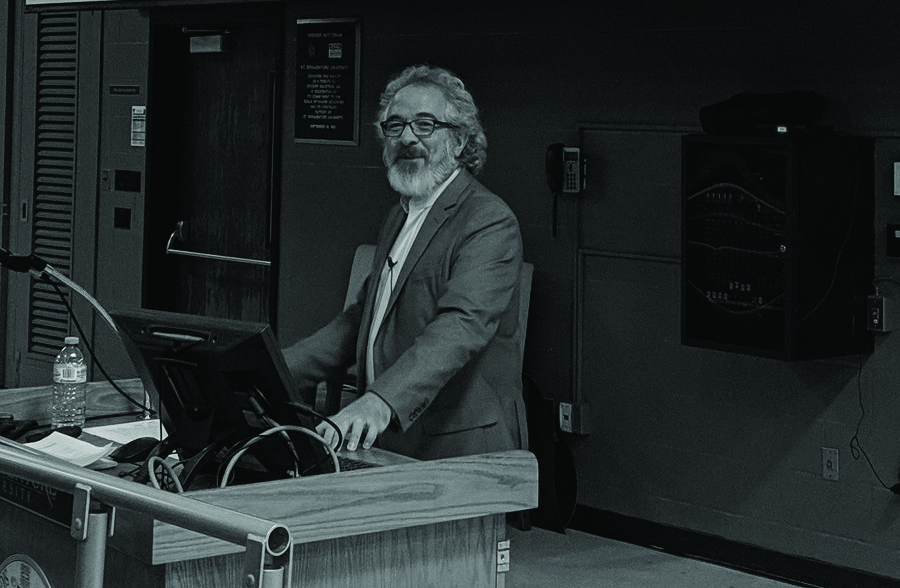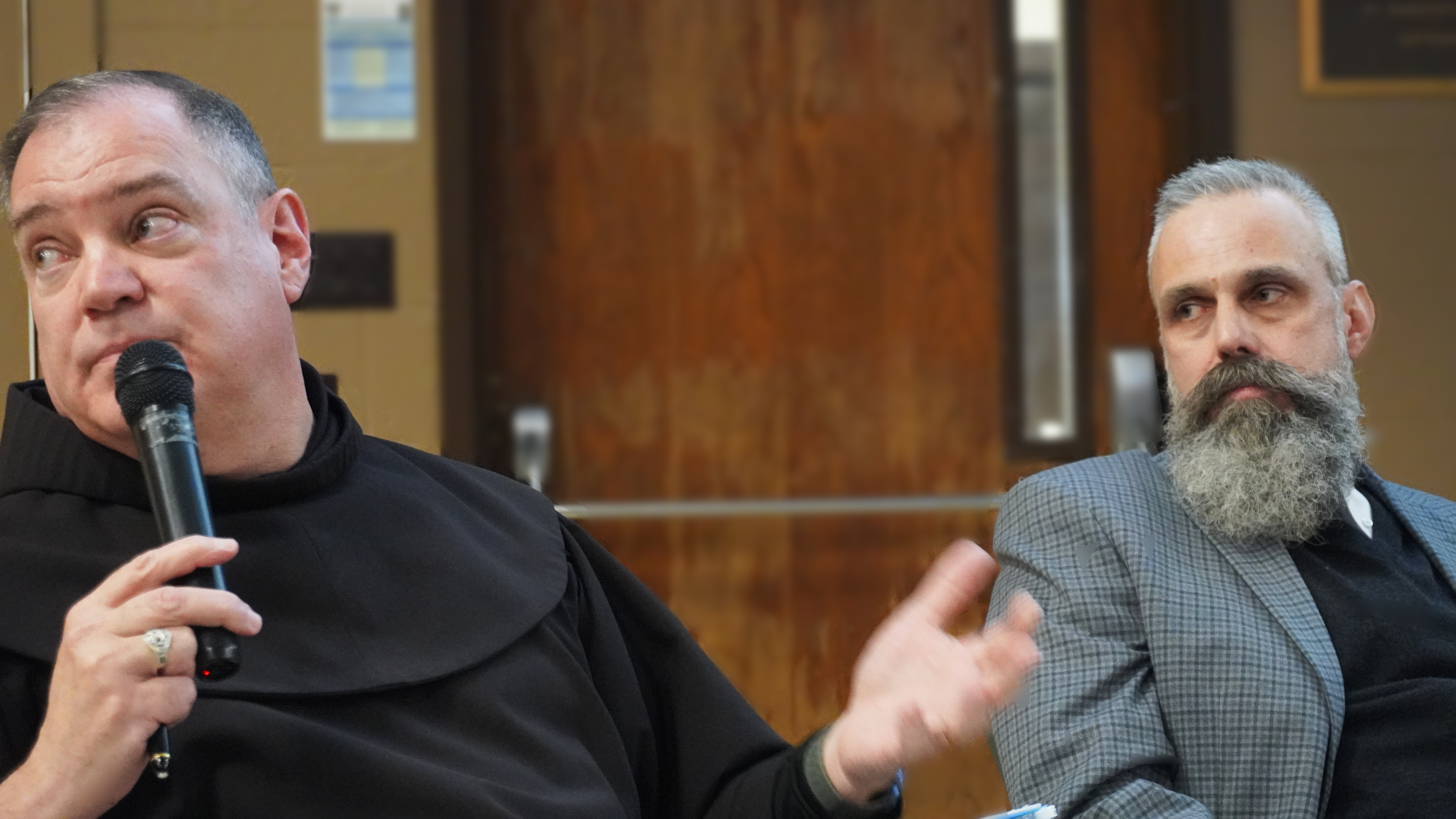Think about the word “otherness.” People may feel otherness from one another, Glenn McClure said. But he added, people have grown to consider our world “other.”
St. Bonaventure University hosts a scholar from varying fields of work every year for public lectures. This year, composer and educator turned data-scientist, McClure, accepted the honor.
David Kassnoff, a lecturer in the Jandoli School of Communication, nominated McClure for The Lenna Endowed Visiting Professorship.
“I wanted to bring someone with diverse, international experiences to campus who could speak across a spectrum of topics,” Kassnoff said. “… The number of sheer experiences and interactions he’s had with multiple cultures struck me as something you don’t normally see on this campus every day.”
In the natural world, McClure believes people objectify the Earth through pollution, deforestation and oil drilling, among other things. And, even though people notice the damage being done to the Earth, McClure believes people remain too passive.
He said, people believe, “It’s too overwhelming to consider changing it.”
Someone needs to speak up and speak out, said McClure, because the Earth cannot speak for itself.
McClure came to Bonaventure’s campus with a lesson he can trace back to St. Francis.
“He was really good at seeing the connection between all living things,” said McClure.
While in Assisi, Francis solved a dispute between the town’s mayor and bishop. He made them sing the “Cantico Di Frate Sole” to settle their differences.
McClure decided to, in a way, co-write music with the Earth. He did this when he traveled to Antarctica.
The teacher of music and humanities at Paul Smith’s College in the Adirondack Mountains of New York spent 40 days in “a place of terrible beauty” listening. McClure listened to Weddell seals communicating underwater, Adélie male penguin mating displays and the activity beneath a one-kilometer thick icy mass.
McClure also enlisted the help of seismologists and seismographs to measure the forces and noises of what occurred underneath the ice. Applying pitches to the data he gathered, McClure made music. He played one of the songs, “Cry,” for students this week.
Christina Giglio, a music and professional and creative writing double major, said she could feel the cold in the music.
“You could feel the chill within their tone and their voices,” said Giglio.
“Music had a scientifically measurable, empirical impact on my brain,” McClure said. “Music changes stuff. Music allows me to communicate with others that I shouldn’t be others with.”
If music can connect people to each other, McClure believes it could connect people to the Earth. It had already done so much for him.
McClure suffers from “severe stuttering.” He learned how to control his disability, but at a young age he would only not stutter when he did one of two things. Either McClure stayed silent, or he sang.
Now, with more control over the stutter, one would just believe McClure pauses while speaking to keep a slower pace or to think of what he will be saying next. Instead, he said he uses 95 percent of his energy to keep the stutter from taking over every third or fourth word.
“I like silent times when I don’t have to talk,” said McClure.
And in those silent times, McClure continues what he did in Antarctica.
“Listening is that other important part of communication,” said McClure, “and to be in silent places is amazing… But in long form silence is where we start to listen to things more deeply.”
To fix the damage being done to the Earth, McClure believes more than scientists should be called upon. Musicians, theologists, journalists, business men and women, etc., can all work together. McClure believes together people can communicate with, and restore, the Earth.






